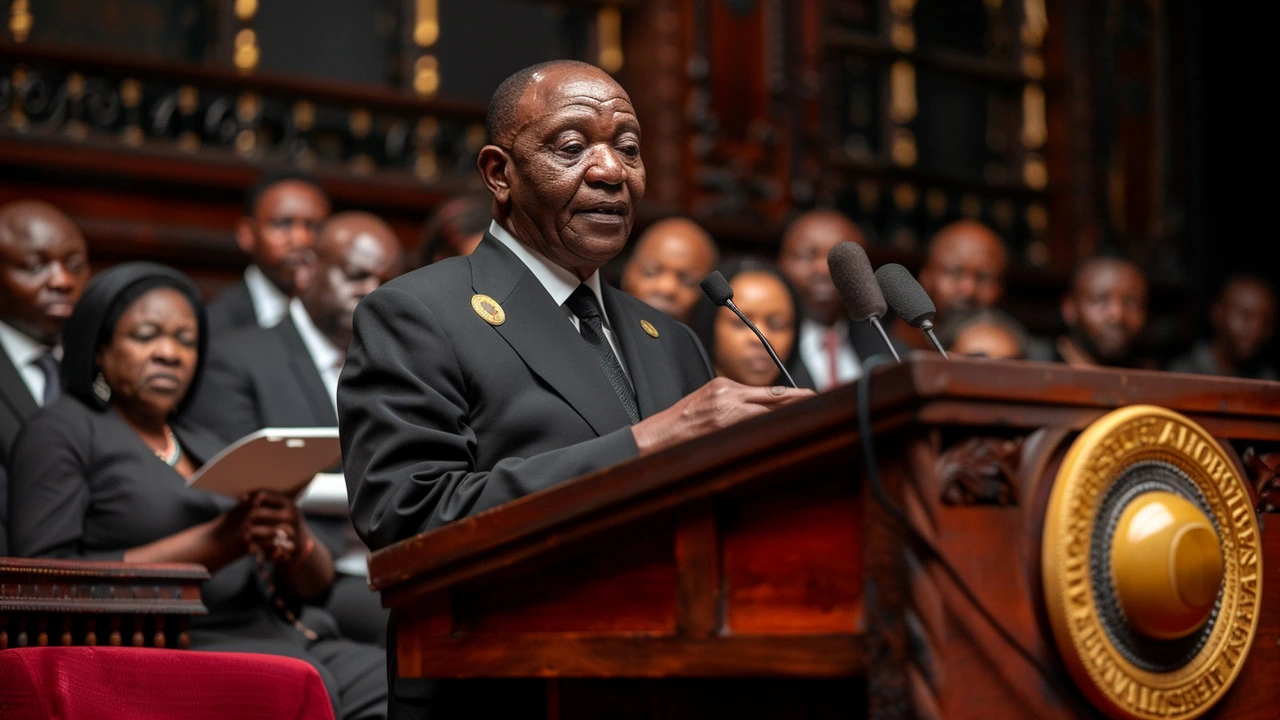High Hopes and Challenges in Ramaphosa’s Cabinet Selection

In Politics
A Nation Awaits Cabinet Announcements
As President Cyril Ramaphosa gears up for his second term in office, all eyes are on the forthcoming cabinet announcement. The President stands at a crossroads, with public anticipation mounting higher each day. Creating a government's executive body is never easy, but Ramaphosa's task is further complicated by the presence of ten political parties within the Government of National Unity (GNU). These dynamics have created a swirling vortex of expectations, rumors, and strategic plays among the political elite.
Government of National Unity: Complex Mechanics
The GNU is an inclusive political framework designed to bring together diverse voices to foster national cohesion. On paper, it's a formula for unity, but the reality is much more intricate. Negotiating between ten political parties, each holding distinct ideologies and agendas, poses a substantial challenge. Every decision made must not only consider competence and capability but also diplomatic balance to prevent fracturing the unity the GNU aims to cultivate.
The pressure to deliver an optimally balanced cabinet is palpable. For many South Africans, this cabinet represents the promise of a stable and prosperous future, backed by collaborative governance. However, this same inclusivity can be a double-edged sword, leading to convoluted negotiations and potential stalemates, as factions vie for significant positions within the government.
Delayed Announcements and Rising Speculations
The delay in cabinet announcements has led to rampant conjecture among political analysts and the general public alike. Why the holdup? Is it a matter of vetting each candidate meticulously, or are deeper conflicts brewing within the ranks of the GNU? Critics and supporters have voiced a chorus of theories, some suggesting that internal strife is to blame. Such delays are unusual and prompt questions about the harmony within the GNU framework.
There are whispers that some parties might not be playing ball, leading to a tangle of negotiations that are proving challenging to unravel. This potential gridlock may compromise Ramaphosa’s ability to meet public expectations swiftly and effectively. It’s a race against time, and each passing day of delay only heightens the public’s curiosity and concern.
The Insightful Observations of Professor Siphamandla Zondi
Professor Siphamandla Zondi, Director of the Institute for Pan-African Thought and Conversation, provides a penetrating analysis of the ongoing situation. In his view, the primary challenge lies in the intrinsic complexity of coalition politics. Zondi emphasizes that while the GNU aims for inclusivity, it often results in an intricate balancing act where political capital must be painstakingly negotiated.
According to Zondi, Ramaphosa's success in the coming term is inextricably linked to his ability to navigate this political labyrinth.
Write a comment